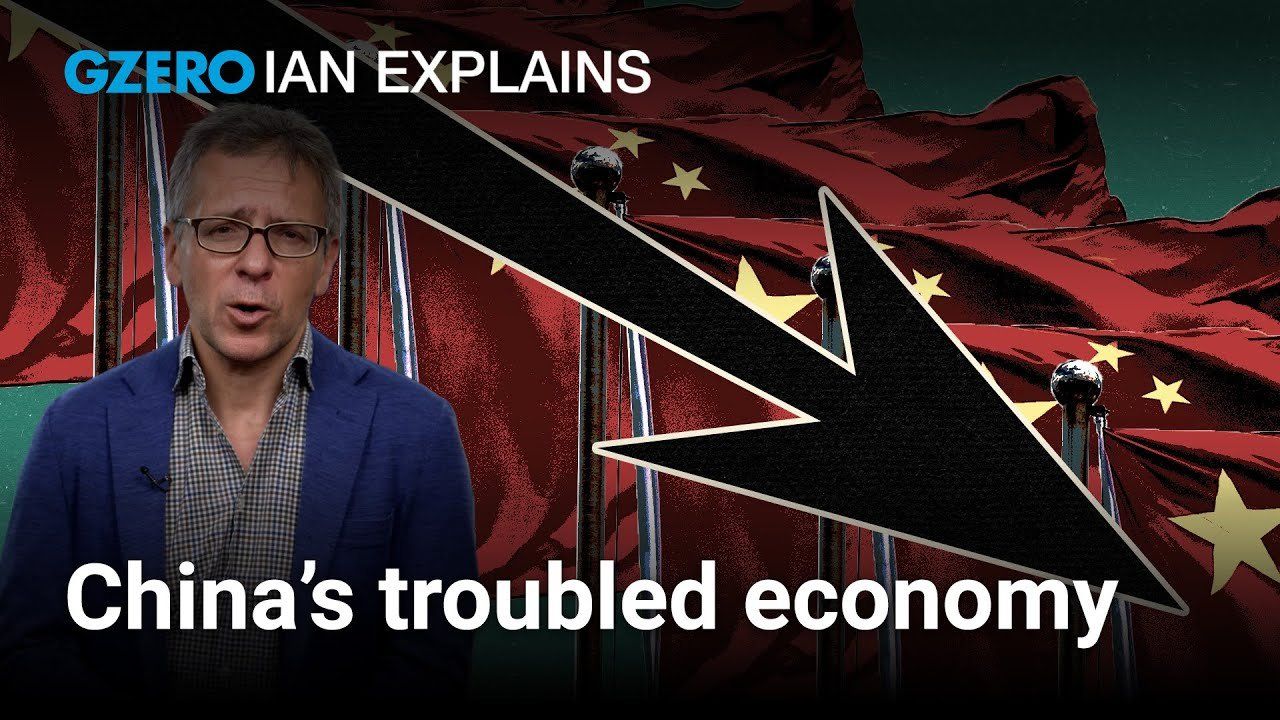GZERO World Clips
Ian Explains: Why China’s era of high growth is over

Ian Explains: Why China’s era of high growth is over | GZERO World

Is China still on track to becoming the world’s largest economy? Ian Bremmer breaks down China’s great economic slowdown.
Between 1978 and 2017, China averaged almost 10% year-over-year GDP growth. Decades of pro-investment policies transformed China from a closed, centrally-planned economy to an economic powerhouse that could rival the US.
But President Xi Xinping has been moving China away from the pro-investment policies of his predecessors and back to its socialist roots. In recent years, the government has cracked down on everything from technology to finance to entertainment to foreign investment.
At the same time, 3 years of Zero-Covid policies sapped domestic spending and production. Decades of infrastructure investment have left local governments drowning in debt. China’s once-hot real estate market is in a massive slump. And youth unemployment is surging to record highs, threatening the very social pact that gives the Chinese Communist Party legitimacy in widespread support.
Can China’s communist ideology and capitalist ambition sustain growth into the future? Or does what goes up eventually have to come down?
For more on China’s lagging economy, watch the upcoming episode of GZERO World with Ian Bremmer on US public television and at gzeromedia.com/gzeroworld.
In this Quick Take, Ian Bremmer examines what may come next in the US-Israel war with Iran as the Trump administration signals significantly larger military operations ahead.
Indian Prime Minister Narendra Modi and Canadian Prime Minister Mark Carney struck a series of deals during a meeting in New Delhi on Monday, including a 10-year nuclear energy deal under which Canada will provide India with uranium.
A satellite image shows black smoke rising and heavy damage at Iranian Supreme Leader Ayatollah Ali Khamenei's compound, following strikes by the United States and Israel in Tehran, Iran, on February 28, 2026.
Supreme Leader Ali Khamenei is dead, the conflict is spreading, and US President Donald Trump still isn’t clear on who he wants to run Iran.
Shipping in the world’s most crucial oil chokepoint has nearly ground to a halt after at least four tankers were targeted in Iran’s retaliation to US and Israeli strikes on Saturday.